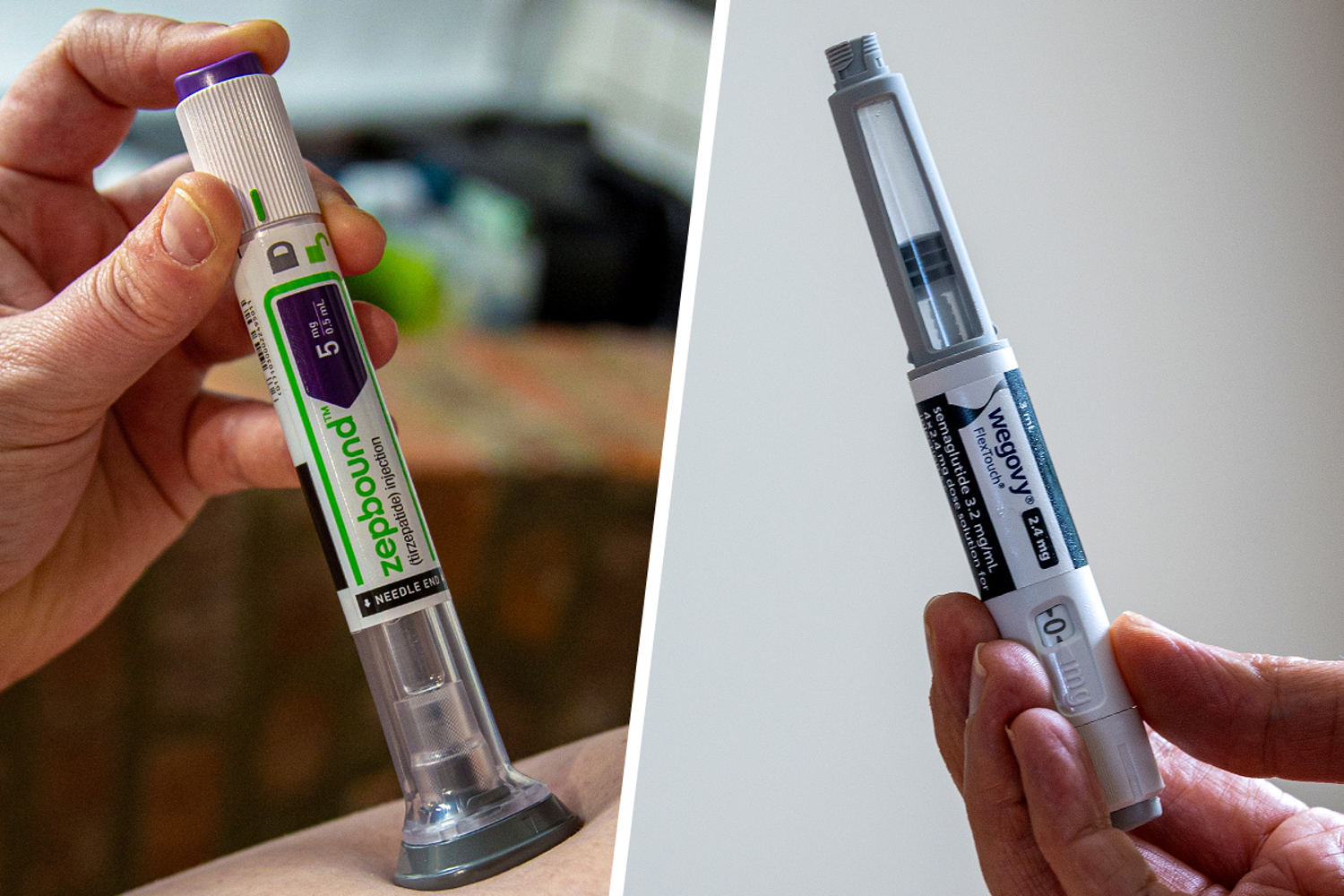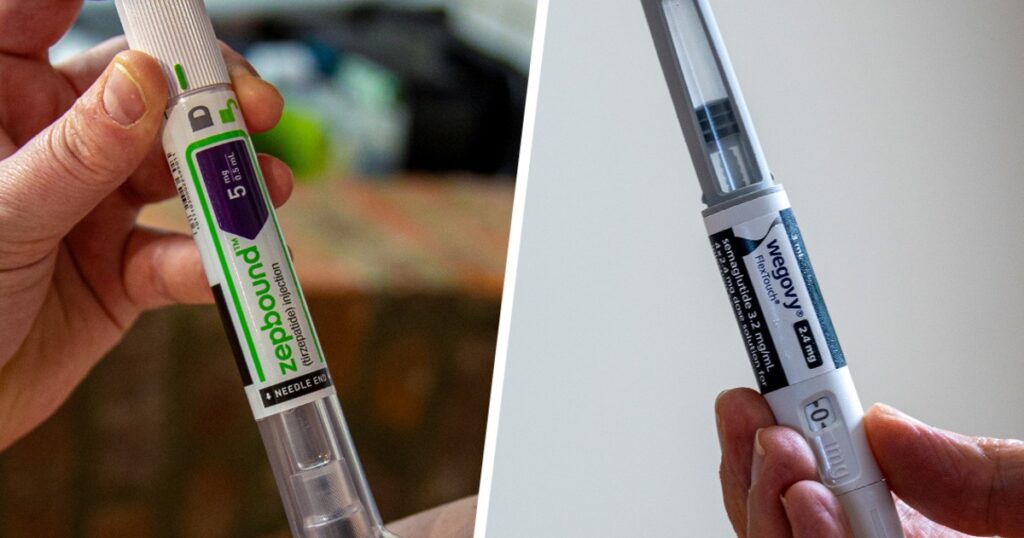
People who took Zepbound, Eli Lilly’s weight loss drug, shed more pounds than those on Novo Nordisk’s Wegovy in a head-to-head clinical trial, Lilly said in a news release Wednesday.
The study, which Lilly funded, is the first randomized, controlled clinical trial comparing the two rival weight loss drugs. Previous studies have shown Zepbound outperforms Wegovy for weight loss, however, those weren’t considered true comparisons as they relied on looking back at existing data.
According to Lilly’s trial results, patients who got weekly injections of Zepbound lost an average 20.2% of their body weight, or 50.3 pounds, after 72 weeks, compared with an average of 13.7% body weight, or 33.1 pounds, for those who got Wegovy.
That means, Lilly says, Zepbound provides 47% more weight loss than Wegovy.
Dr. Susan Spratt, an endocrinologist and senior medical director for the Population Health Management Office at Duke Health in North Carolina, said that although Zepbound provided more weight loss than Wegovy, both drugs are highly effective.
“The amount of weight loss with both is astounding,” Spratt said.
Wednesday’s results were announced in a news release and haven’t been made available for peer review yet. Lilly says it plans to present the results at a medical meeting next year.
In a statement, a spokesperson for Novo Nordisk pointed toward Wegovy’s benefits on the heart, saying that “in combination with diet and exercise, Wegovy is the only obesity medicine proven to reduce the risk of major cardiovascular events such as death, heart attack, or stroke.”
The results were based on 751 adults across the U.S., including Puerto Rico, who were randomized to get one of the two highest doses of either Zepbound or Wegovy. People either were overweight or had obesity.
Eli Lilly said the most commonly reported side effects for both Zepound and Wegovy were gastrointestinal-related and “generally mild to moderate in severity.”
Dr. Christopher McGowan, a gastroenterologist who runs a weight loss clinic in North Carolina, said the side effects for both Zepbound and Wegovy are generally comparable, although his patients tend to say they fare better on Zepbound.
Side effects from the drugs can include gastrointestinal problems, including abdominal pain, nausea and vomiting.
Zepbound contains the active ingredient tirzepatide, the same drug used in Lilly’s diabetes drug Mounjaro. Wegovy contains semaglutide, the drug also in Novo Nordisk’s diabetes drug Ozempic.
Both work in similar ways: The GLP-1 drugs mimic a hormone that helps reduce food intake and appetite.
However, tirzepatide also imitates a second hormone, called GIP, which, along with reducing appetite, is thought to improve how the body breaks down sugar and fat.
Spratt said she’d like to see more data comparing the drugs to health outcomes beyond weight loss.
Wegovy, for example, has been shown to reduce the risk of heart disease in people who are overweight or have obesity. Zepbound has been shown to be a possible treatment for obstructive sleep apnea.
“I don’t think that was the aim of this trial, but it will be important in which drug to recommend,” Spratt said.
McGowan said weight loss isn’t the only factor patients consider.
“Most patients who seek a GLP-1 treatment choose whichever they can obtain based on cost, availability and insurance coverage,” he said. “Very few patients can be choosy right now.”













